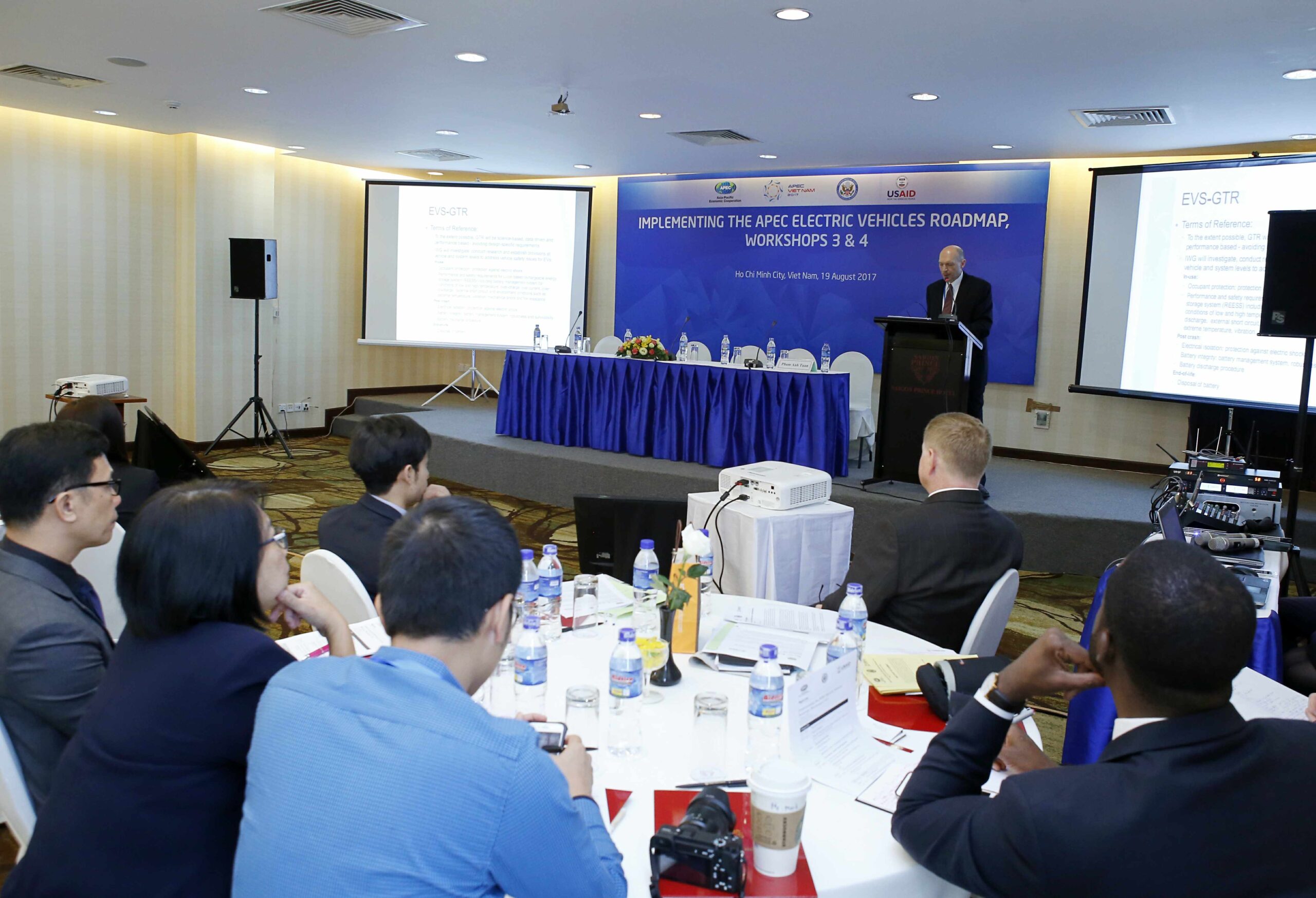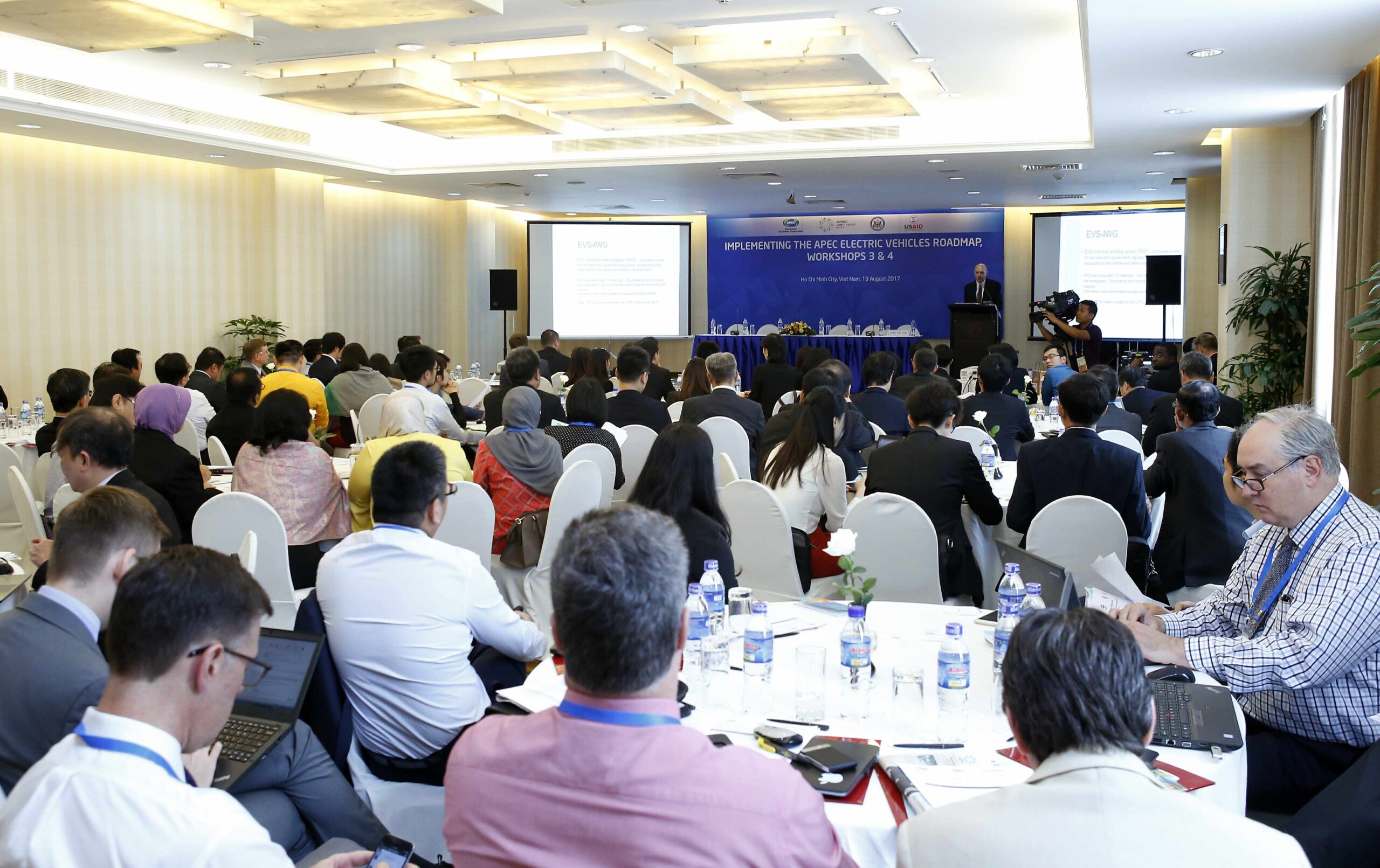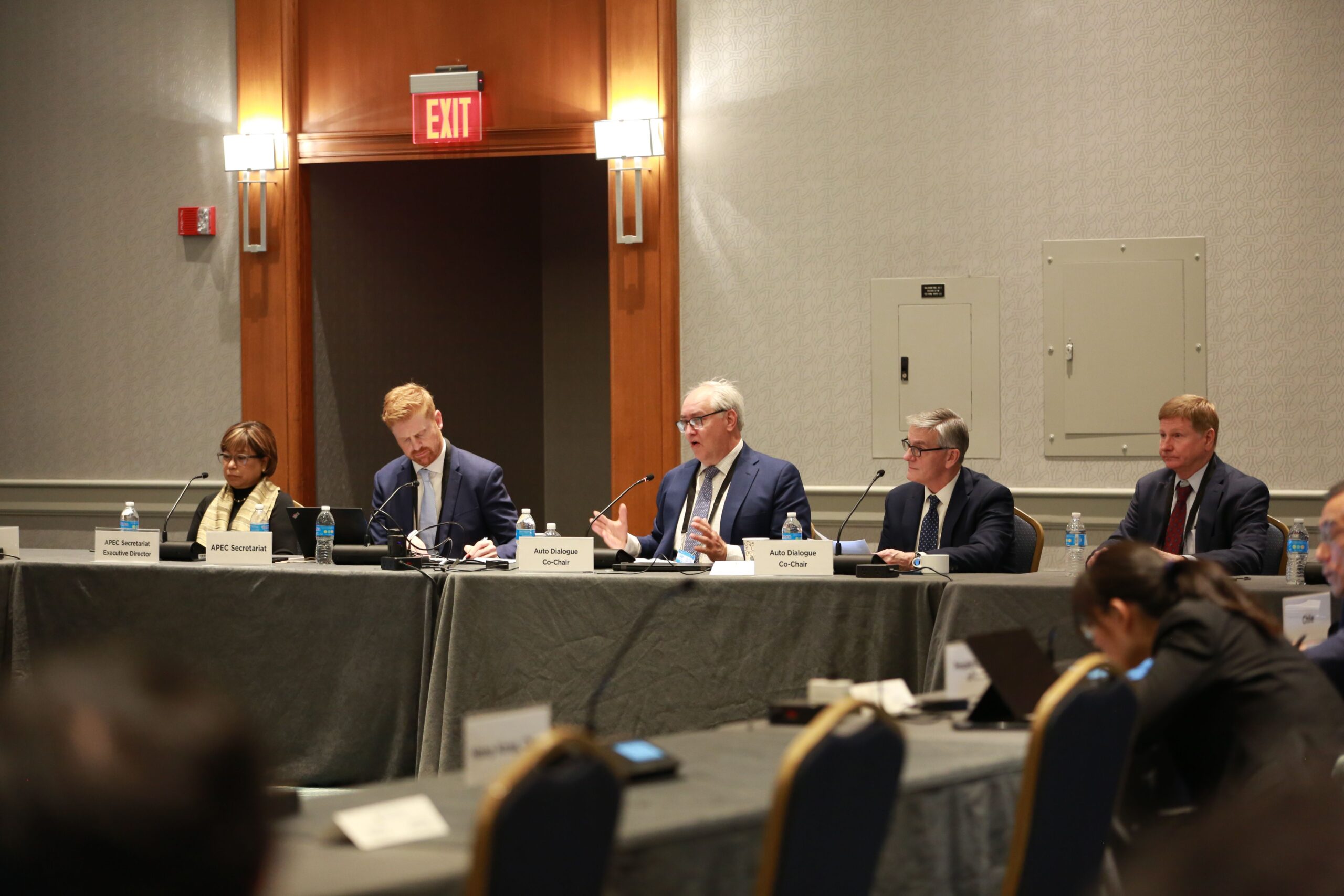The APEC Automotive Dialogue and Electric Vehicles
Context
The automotive industry consists of deeply integrated global value chains with an estimated market size of approximately $5 trillion, with leading production economies and substantial consumer markets throughout the APEC region. As an industry with complex global production and distribution chains, standardization in products and liberalization of trading regimes can dramatically impact the efficiency of the sector and accrue benefits throughout the region. The global nature of the industry and investments of leading manufacturers around the world have led to a more globalized and cooperative effort to regulatory and standards setting in recent decades, particularly on emerging technologies.
Companies and member economy regulatory agencies participate actively in many of these international and private-sector bodies. Nevertheless, important regulatory differences remain globally and in particular among economies home to the largest car manufacturers which means that trade barriers remain in important markets for these products, including both tariff and non-tariff barriers (such as regulations and standards). Areas where new regulations and standards are being developed or implemented offer unique opportunities to develop more convergent or even harmonized regulations and standards. At a minimum, decisions by third economies to at least copy a particular set of foreign regulations already established, or accept vehicles conforming to those regulations, can prevent further global divergence.
As an evolving and maturing automotive market segment, electric vehicles represent a revolutionary innovation that can dramatically reduce transportation-related carbon emissions and enable increased regional trade in new electric vehicle products. The innovation will impact the automotive sector in a multitude of ways, from emissions requirements and safety standards in vehicles to the enabling infrastructure and broader regulatory ecosystem necessary to support trade and automotive travel between APEC member economies. The Automotive Dialogue, in coordination with other APEC industry forums, has taken a leading role in promoting regulatory harmonization and convergence, preventing further divergence and advocating for clearer rules to help scale up electric vehicles throughout the APEC region.

Photo Credit: APEC Secretariat
In 1999 the APEC Automotive Dialogue (AD) was established to offer representatives from industry and regulators a clear forum to help facilitate the development of regional strategies and standards to increase regional economic integration in the sector while also facilitating automotive sector growth throughout the APEC region. The structure of the Automotive Dialogue as a forum for dialogue and action among industry and member economy regulators offers flexibility to identify and discuss priority topics for industry growth throughout the region.
Key topics for the Automotive Dialogue include:
-
- Industry-related developments in free trade agreements and trading systems throughout the APEC region
- Industry taxation systems
- Sustainable sector development approaches
- Mobility and infrastructure, and
- Evolving technologies and the regulatory response required, with recent topics including electrical vehicles and autonomous driving vehicles.

Photo Credit: APEC Secretariat
Main Characteristics of the Cooperation
In November 2014, APEC Trade and Foreign Ministers endorsed APEC Actions to Promote Widespread Usage of Electric Vehicles, calling for development of a roadmap for Electric Vehicles. A roadmap was developed through the AD through a project overseen by the United States and was formally endorsed by APEC in 2015. The Roadmap for Electric Vehicles identified a series of 12 action items to be undertaken across a series of workshops with participation across the Automotive Dialogue, Energy Working Group, and Transportation Working Group to establish concurrence on regional standards for new electric vehicles. Recognizing the work already undertaken, APEC sought to build upon existing international standards already under development, such as the WP.29, ISO, and other global forums while creating a dialogue to ensure that regional issues were addressed.
In May 2018, the AD conducted a workshop to support convergence across regulations and standards for electric vehicles to promote investment and trade in this key sector while simultaneously targeting commitments to reduce greenhouse gas emissions throughout the region. This workshop discussed updates to international standards such as the United Nations Global Technical Regulations on electric and autonomous vehicles. The workshop also included a deep dive discussion on the regulatory environment for electric vehicles in the APEC region, particularly in New Zealand, Thailand, Korea, the Philippines, and the United States.
The workshop focused not only on the vehicles, but the broader electric vehicle ecosystem, including charging developments and standardizing efforts and shared best practices under these topics. The workshop hosted a panel discussion on emergency response safety training for electric vehicles and capacity building by key industry representatives, followed by a discussion for priority standards and next steps for EVs throughout APEC. Key takeaways during this dialogue included the recognition of the importance of standards in informing regulation and creating harmonized regulatory systems and standards across economies to expand markets, better enable the cross-border movement of EVs across the APEC region and enable greater market access with less cumbersome compliance costs. Economies specifically observed the importance of private sector and industry in driving development in this market, and the gap in standards for 2- and 3- wheel EVs as well as education training.
Assessment
The market for electric vehicles has grown at varying rates across economies, however, the growth has been consistent and increasing in pace so that there is now a regional need for minimum requirements throughout APEC.
Harmonization and technical convergence can help to reduce development and implementation costs in both developed and developing economies. Harmonized standards throughout the region that are aligned with already established regulations or international standards will help to eliminate costly duplication of compliance burdens on manufacturers and can eliminate risks of further regulatory divergence. It will also help speed the introduction of these new technologies which offer hope of drastically reducing carbon emissions and reduce vehicle operating expenses through lower-cost electric sources.

Photo Credit: APEC Secretariat
Next Steps
APEC member economies updated the March 2019 study “Electric Vehicles in APEC: Overview of Regulations and Standards”; this will feed into the development of an electrical vehicle regulations and standards database that captures the breadth and diversity of approaches to regulations and standards globally and across APEC.
Furthermore, the Automotive Dialogue has developed a self-assessment tool covering a range of standards and regulatory approaches for vehicles, batteries, roadways, and grid infrastructure to discern the comparative performance of an economy on certain policy objectives such as safety, efficiency, and sustainability. This tool will enable economies to conduct their own gap analyses to diagnose gaps and benchmark regulatory improvements to promote growth in the electric vehicles sector.
Where clear priority themes emerge throughout the region based upon the self-assessments, the AD will plan to conduct capacity building workshops tailored to the gaps identified across APEC.
Date: This case study was written in 2021 and finalised in 2022.